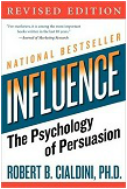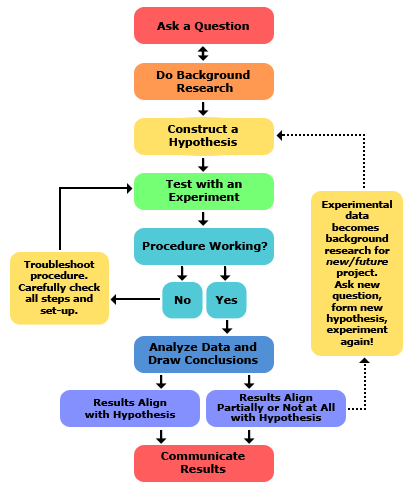|
From the wisdom of Jocko Willinck.
Being prepared is doing the hard work up front. Mentally. Physically. Emotionally. Planning. Repetition. There are NO shortcuts. What prepares you to succeed is the months and years of constant effort to prepare. Build up your skills, hone them, repeat them, make them second nature. What prepares you for a challenge is never the few minutes before where you visualise and repeat positive affirmations and listen to inspiring music. No. Its the daily discipline, preparing yourself for the challenge. Discipline and training .. Being Prepared. Being prepared is the opposite of winging it. However while winging it is never the first choice, there can be an element of being prepared so that you are better able to wing something. When I talk about hacks, they are not intended to be on-off tricks that can be implemented on the spot ad-hoc. They need to be practiced, taken on board, ingrained, internalised. Practice. Be prepared. Do the work to reap the rewards. Success is built long before the challenge is overcome. Sometimes (very much only sometimes) facebook serves up a really awesome post. As the title of this post states, these items all require no talent. Your kid does not need to be super smart to do any of these. What they do need is some direction. Some coaching. Someone to show them these qualities, and to start experiencing the benefits they can bring.
Here they are:
Bang. What a list. Make these part of every-day life. Start small. Introduce them in conversation. Be proud when these qualities are being demonstrated.  When you hear the word Retro you are most probably thinking something like Elvis, Beehive haircuts, Mission Brown paint colour. That is not what this is about. Tell me .. do you think Self Improvement is something that can and should be done as a high priority, with focus and intent? Isn't Self Improvement the one thing that everyone strives for, to be better, to earn more, to love more, to be more generous, to achieve more. How are you doing with your Self Improvement? How is your child going with that? Is it a purposeful, meaningful activity that is a tight part of your every day activity? The Retro. When I say Retro, I mean it as a "Retrospective" .. an activity where you take a moment to reflect on something, assess the good and bad, what went right and wrong. Who does Retro? A retro is commonly used as a tool in Business - typically for 'Agile' teams that are working together on a project. A Retro is used to periodically stop, assess your work, your results, your team dynamics, the quality of the work, the happiness of the team/sponsor/customer. The actions that come out of a Retro is supposed to improve the quality of the work, the quality of the result, the happiness of the team etc. By doing Retros quite often (every 2 to 3 weeks, after something is delivered) you build into your practice a feedback loop that should continually help to improve every aspect of the work. Why do a Retro? Its so often quoted that I think we tend to just gloss over it now, but if you continue to do things exactly the same way then you are likely to just repeat the same mistakes and achieve pretty much the same outcome. A retro is a chance to stop, assess, congratulate and celebrate the good stuff, modify the bad stuff, take note of things that we are unsure about. This is really the very essence of self improvement. If you don't stop and take stock, adjust your course, consciously try and do things a little better, stop doing things that arent working, then what chance have you got of achieving the most you can? How to do a Retro? The four key questions doing a retro? - What went Right - What went Wrong - What should I do Differently - What Puzzles me Some Guiding questions to help your thinking.
Steps:
When should you do a Retro? I would suggest the Retro should become part of your kids lives as soon as possible, and be used all the time.
What to do with all your Retros? After you finish a retro, review your answers. Resolve to take some action on one or more of the most important points that you think need attention. Definitely review your Retros from time to time. The true power in a Retro is to look back and make sure you are doing the things you thought you needed to keep doing, Make sure you are changing the things that you identified that needed to be changed. Did you really make an effort to find out about the things that Puzzle you? The more you look back, the more you will take on board - you will just make it a natural part of your day to truly turbo-charge your self improvement. That is kind of what its all about? Right? Ok, so I've been in extended absence for a while for a few reasons, but chomping at the bit to get back into delivering quality information hacks for our kids. Today i'm revisiting something I was using a long time ago, and one that really is so fundamental to the early development of lifelong learning that it should be top of mind in all learning related endeavours. SQ3R was development by Francis Pleasant Robinson way back in the 1940's in a book titled 'Effective Study' It was developed for college students but can be applied in earlier schooling, and of course all the way through the rest of everybody's professional life. SQ3R stands for the five steps that you should use when reading something that you want to imprint on your brain. These five steps are:
Step 1: Survey Start by skimming through your material to decide if and how it will be useful and to get an overview of the information. For a book you might scan the contents, the introduction, some chapter introductions, and the chapter summary to get an overview of the material. Then, look at formatting of the text: bold words, italics, subheadings, boxed text. These tend to point to words or ideas that are important to the subject. Go over any images, maps, charts, and diagrams that are in the text. Note: This step will give you a good idea if this information contains relevant information you are looking for if you are researching for a subject. If it doesn't seem to meet your needs, set it aside and keep repeating this step with other sources. Step 2: Question Write down questions that you may have about the subject. These are likely to be questions that you have from before looking at the material, as well as ones that form in your mind as you are going through it. Write down what you want to find out from this information, where the interest is, and how this information might help you. This step is actually quite a crucial one that many people skip or are completely unaware of. By forming questions you actively engage your brain and your memory and attention are primed to receive the information. Step 3: Read Now methodically read through your material one section at a time, writing down anything that you might not understand. As you are reading, write down the information you need to remember in terms of questions. This restatement of information again actively engages the neural networks in your brain, helping to imprint what you are reading. Step 4: Recall Take time to go through your material, ask yourself the questions you have written down and try to remember the related information. At this time it is also useful to make connections with other information - think about how this relates to other information. Step 5: Review Review your notes, your questions, and the material itself. Talk about the material with others, ask them your questions, get them to ask you their questions. One of the best ways to remember something is to teach it to others. Reviews should be scheduled regularly at first .. daily for a few days, then after a week, then a couple of weeks, a month. How often do you or your kids simply do something without thinking about it. It can be anything. Cleaning a room, reading a book, doing your shopping, going on a bike ride.
Have you thought about what you are doing. Am I doing it correctly, have I got all the information I need, have I forgotten anything, is there anything else that I should be doing/bringing/thinking about. Case in point .. my bike riding. I was always forgetting something. Gloves. Water bottle. Keys. Reflective bag cover for my backpack. I was getting sore shoulders from the shock of riding over the bumps on the path I take to work. I kept on riding, kept on forgetting things, my shoulder ache never seemed to clear up. Then one day I stopped at the front door of my house and thought "enough". I will not forget stuff again. I will not tolerate a sore shoulder anymore. So I did two things. Made a commitment that as I leave the house I stop and think about all the things I should have with me on the ride. Very simple. But very effective. I have not forgetten anything in months. I still stop every single day and think about my riding checklist. I also went on youtube and researched shoulder soreness for bike riders. Turns out the position of my arms was too stiff, I was carrying too much tension in my shoulders. So I took some pointers and now I ride with my arms slightly more bent, slightly more relaxed, and my torso takes some of the tension that my shoulders used to take. Shoulder soreness gone. All because I had an 'aha' moment and decided to think about what I was doing. Can you apply this to something, anything, today. Right now. Found an interesting concept that I immediately liked and was percolating in my mind for a long time. I've forgotten where I found it now but had the urge to share because I think the impact on you and your children can be absolutely immense. My google-fu is weak at the moment but i'm still looking for the original source of this.
Every 3 years, for that 3 years, you concentrate on learning a particular topic. Its not further education, University, College etc - but a self driven, self motivated quest to become a master on something. By master I think to get to a level of proficiency that you can confidently approach that subject with recognised world authorities and have a deep and meaningful conversation with them. You will also be in a position that you know more about the subject than 99.something% of the population. If you start at 18, by the time you are 42 you will be extremely well versed in about 8 different areas of interest. Why? Think about the advantages your children can apply in their life, and just as meaningfully (more so in some circles of philosophy) in the service of others. How? For three years you concentrate on a topic. This means fully immerse yourself in that topic, read widely - from people you agree with, and particularly people or ideas you disagree with. Discuss and debate the topic, teach others. You want a broad view of your topic, and then you also want to go deep. Really deep. I would suggest keeping notes. Use a paper journal or something like Evernote if that is more your style. You want detailed notes with YOUR thoughts - not just copy/paste. Review the notes, amend them, expand on them. Turn them into mini lessons, presentations, eBooks etc. Become a Librarian, Journalist, Investigator, Author. Specifically I would start with these sort of ideas on how to go about mastering something.. - Read books (of course!) - Read trade journals - Read reputable websites - Engage in discussions - Seek out a mentor - Take web based lessons (KHAN, UDEMY, COURSERA etc etc) - Take formal tuition where practical and available Do something EVERY DAY. Be curious, seek out your topic where you would not expect it, draw parallels in the real world What? This is entirely up to the individual of course, but there are a number of things that will likely give a lifelong (massive) benefit if covered earlier than later. Communication - Specifically the skills of persuasion, debate, argument, critical thinking, philosophy. Business - Marketing, Finance, accounting Finance - Personal finance particularly. Learn all about money, how rich people think about it, what habits they employ, how they use it, how that translates to you. Sport - Golf is a lifetime sport, you can theoretically play it until late into your senile years. Art - Learn to sculpt/paint/draw/decorate/photograph. Curate an art gallery. Music - Immerse yourself in an instrument, get intimate with a style of music, write music, become a performing musician, composer. When to start? Of course right now! For myself i'm really digging psychology right now, and specifically persuasion, influence and the mid games that go on in marketing - so that will be my focus. Hack on! Lets start by not talking about homework. What sets achievers apart? - their willingness to put in extra effort, when everyone else relaxes, down tools, get distracted, the achiever will relentlessly pursue their goals. - sheer grit to achieve a result - the edge you have over other people will be the amount of effort you put into something. If you read more, practice more, reflect more, seek more advice, open yourself to more feedback, open yourself to criticism, learn, adapt, dodge, sprint, selflessly help others - you will slowly tip odds in your favor of achieving your goals. I'm pretty sure people will argue some of the above points, but if you read enough biographies you will find that successful people do tend to display those qualities. So how does homework help with this? - Essential skill to build resilience, determination - Essential in the formation of a habit that breeds success - Success is mostly sheer determination, doggedness, willpower, grit. Homework helps students by complementing and reinforcing classroom learning, fostering good lifelong learning and study habits, and providing an opportunity for students to be responsible for their own learning. Students benefit from completing homework regularly. Homework helps them develop organizational and time-management skills, self discipline, skills in using out-of-school resources, and personal responsibility for learning Note that learning should never stop, and definitely should be on-going all the way through adulthood. The ability to learn new skills, improve current skills, even taking the time to understand a subject in greater depth are core development priorities that adults should practice. By starting kids with homework and making it a simple habit it will set them on this path. What types of homework are there? 3 types of homework
How to do homework? There is literally a metric bucket-load of resources on the net on effective study techniques. Choose some, review them and put together what works for you and your child. SO what hacks can we start applying? - Do YOUR homework at the same time as your child. Show a commitment to learning. - Take a course on how to learn. COURSERA have an awesome free online course. - Encourage your child to ask the teachers what will be covered next. Read ahead in textbooks, pre-read materials being studied. Pre-read material from multiple sources. Globalization threatens to eat up many jobs in the future. Jobs that will go to lower paid but highly skilled workers. When you think about the skills that will be needed to secure your child's future, I just cant help but think that Leadership is right up there at the front and center.
Every business needs leaders. Every charity, non profit, sporting team, army unit, club, reading group etc etc. The quality of leadership is required everywhere. What are leadership qualities? - Humility - Decisiveness - Forgiveness - Encouragement - Courage - Wide eyed (Listen to all sides, encourages all opinions, considers all options) - Not prejudiced - Organised - Strategic - Tactical when required These are just off the top of my head what I would say make a great leader. I believe good Leaders encourage, cajole, plead, assist, communicate, negotiate, plan, execute, and generally manage up and down in a way that is as helpful to everyone involved as possible. Also in my opinion is that Bad leaders threaten, demand, abuse, stonewall, avoid responsibility, reject feedback, avoid action, ass-kiss, obscure, mislead. You know the type. How do we instill leadership qualities in our children? Practice: lots and lots of practice. At home: - Responsible for organizing a formal dinner - Organizing a family weekend away somewhere - Organize a gathering of neighbors for a BBQ - Responsible for keeping the house clean for a week (practice delegation, motivation, organization, quality control) - Responsible for all the family's meals for a week. At School - Organizing a play, recital, performance, debate, dance display. - Organize a sporting event Community - Organizing a park cleanup - Organize a recital for an elderly group After each of these, take the time to reflect on how these went. See what went well, what didn't go so well, where improvements could have been made. Celebrate the success and the mishaps. They are awesome learning experiences. Use the checklist at the top of this piece as a starting point to talk about how your child demonstrated leadership qualities. There will eBook or an eCourse forthcoming covering all these leadership qualities, and how we can begin to instill them in our kids. This is such a large topic, it just needs to be fleshed out. There is an awesome new talk on TED delivered by Judson Brewer about Habits, highlighting a simple and powerful means of breaking the Habit Cycle. It is titled "A simple way to break a bad habit".
Essentially the hack is to be mindful of the bad habit in all three stages of Trigger - Action - Result. So .. for example if you compulsively get up off the couch in an ad break and head to the refrigerator to look for a snack; Judson's clinical findings are that if you are mindful at each step you have a good chance to help break that habit..
Just this act of thinking about each step of the habit cycle apparently has enormous benefit if you are trying to break a bad habit. initially, don't even try and stop yourself from doing whatever it is you want to stop - the power in this technique is to monitor your thoughts and feelings as you go through the motions of the habit. I suspect this technique engages the conscious part of your brain and sends signals to the sub-conscious part that you are technically not happy about what it is making you do. By doing this repeatedly it may help to re-wire or short-circuit the auto response from the sub-conscious mind. I will investigate further on this for sure! There is actually a great playlist of talks all about habits on TED. Check some of them out .. its fascinating stuff. I will be putting together a complete article on Habits - what they are, how they affect our thinking and actions, how to break habits, how to form good habits. Of course, there will be some simple but powerful hacks that we can apply to teach our kids. In the meantime - how about we try this out. Pick a bad habit and next time you catch yourself (hopefully at the trigger stage) you can think about how you feel as you are going through the process and acting out your habit. Do it every time you are in the grip of the habit and after a week or two see if you are closer to tricking your brain out of the habit.  Rapport is defined as a sympathetic relationship or understanding. Its an ability of relating to others that creates a level of trust and and demonstrating you understand with their world view. It doesn't necessarily mean they like you at first, but there is a mutual connection. Some people are naturals at building Rapport. Kids tend to be good at it, without knowing how or why, but as we get older it almost seems like we lose this innate ability to connect. Wouldn't it be an awesome superpower if your child could connect with almost anyone? There is lots of science out there, and psychology is stuffed full of studies on how people connect with each other. There are many books online that can explain the art of building rapport, including Tony Robbins, Ben Evans, and Claire Raines. One of my favourite resources however on building rapport would have to be "It's Not All About Me: The Top Ten Techniques for Building Quick Rapport with Anyone" by Robin Dreeke. His process not only includes research into social and evolutionary psychology, but it’s been honed from years of field experience. FBI field experience. Yeah. This book breaks down building rapport into 10 key areas. Now, when you look at these areas they look very adult-y. I want to try and link them back to some hacks that we can instill in our kids to enable them to better connect and build rapport with people. 1. Establishing that you wont take up much of their time
That is a lot of information to take in, even when summarised to these bare bones. So how can kids start practicing the skill of building good rapport with others? We can boil down some simple hacks for kids..
The hardest one .. but most valuable in my opinion..
Phew.  Reciprocate verb (used with object), reciprocated, reciprocating. 1. to give, feel, etc., in return. Whether you are aware of it or not, you are affected by Reciprocity all the time, from every direction. When someone does you a favour, you tend to feel indebted, and feel the need or want to return that favour, whether it is expected or not. In many many cases this feeling is very strong - and it is because of this it is a tool used by people to get a certain response from you. Picture this. You are browsing through a shop, looking at some shiny stuff. A salesperson approaches and you inform them that you are just browsing. Five minutes later, the sales person has very politely and with great humility and lazer-focused practice introduced themselves, inquired on your well being, commented on your taste, informed you all about the stuff you are looking at, benefits, options, special deals that are not displayed but available to you specially today, and very politely backed away with a cheery wave and a casual prompt that if you need to know more, or if you are in fact thinking about making a purchase it would be their honor to serve your needs. What they have done is incurred a debt on your behalf. They have donated their time, their considered effort, their expertise, their cheery disposition. And you have been shifted along the sales cycle because you now feel you 'owe' them something. They have done it with skill and care, and it worked because the prospect was unaware it was happening, even though it is one of the most basic constructs of not just the sales cycle, but our human psychology. Thats reciprocation. Someone has done something for you, and you feel the psychological need to pay them back. When its done from the heart, with genuine intent, with no apparent strings attached, it is a powerful tool to motivate someone to lean towards doing something. When it is done incorrectly, it can have a bad, negative effect. Think of the sterotypical sleazy car salesman trying every trick in the book to hook a sale, think of the street hustler cajoling you endlessly with their diatribe. Also, and it's hard to not fall for this, is when you as a parent do something with the implicit intention that you expect something in return. Observe when you do this, and how effective it is. If you order your kids to clean their room before they are allowed to do something - does that have a lasting positive effect, do they automatically do it again next time, or do you constantly have to threaten the same thing again, does it breed resentment, contempt? Does the delivery and the context of the initial offering have an effect on the reciprocal effect?? What do you think might happen if we start to flip it and use reciprocity in a loving positive way instead of a forceful negative way with our kids. Would that achieve better long term results, more chance that children will start to do things out of respect and love and mutual benefit? Hang on - I'm a parent and kids in my experience tend to start taking things for granted when you constantly do things for them. Maybe thats a function of the special relationship that exists between parents and children - but - what about if you do surprise, unexpected things for them. Go out of your way every now and then and do give them a 'bonus'. For nothing. With no obvious expected immediate return. That context is a little different to when we do things for kids in a routine way. So really, why is reciprocity important? I think it is because it builds a level of trust. Without trust you are lost in a world of business, in relationships, in teams, in congregations. If there is no trust you fall back on single transactions, each one with an element of unknown outcomes, uncertain possibilities, no long term prospects. Trust is built up over time. With small gestures, with a number positive outcomes all strung together. There is no instant trust. When you trust someone you are more open to their opinions, their sales pitch etc. The gesture needs not be terribly large either - the simple act of a kind smile, or mimicking someones body language sets up the environment for a reciprocal deal. Note that the setting where the initial gesture is made does not necessarily need to be the same as where you want the outcome delivered. This is why companies garner favor on their clients and prospects by taking them to sports matches and lavishing them with attention outside the business setting. The implication is that the favor will most probably be returned in the business setting. They key, then is to ensure when we want to sway someone to our way of thinking, to perform something for us, to side with us in a reciprocal way? - Be genuine, do it from the heart - Expect nothing obvious in return, but be grateful when it happens. - Allow others to reciprocate and benefit from the opportunity to do something for you - Start small and work up (build rapport over time) So how do we teach a child this skill? There are a number of ways that you can introduce this; - Observe the effect out there in the real world. When you are out shopping, obesrve it happening, when you are watching TV shows or movies, see if you can spot this principle at work, - Be a good role model and practice this yourself, showing your children how it works - Practice, start small. What I would recommend for this hack: - Discuss over dinner how many nice things your child did for people, what the nature of the gestures were, what immediate effect did it have on the person receiving the gesture. Did anyone return the favor, did anyone do something for you that might be linked to something you did for them? To be very specific, maybe you can set a goal for obtaining something from someone. Then work up to it, start doing things for them, giving them little gestures, and see what happens. Grandma could be an awesome test subject for this sort of activity .. maybe a bit easy perhaps?  persuasion noun 1. the action or process of persuading someone or of being persuaded to do or believe something. "Monica needed plenty of persuasion before she actually left" synonyms: coaxing, persuading, coercion, inducement, convincing, blandishment, encouragement, urging, prompting, inveiglement, temptation, cajolery, enticement, wheedling, pressure, moral pressure; informalsweet-talking, smooth-talking, soft-soaping, arm-twisting Look at that list of synonyms. It puts the concept of persuasion in a slightly new light, correct? How useful would it be if we actively taught our children the art of persuasion. and not necessarily in a negative light either - it doesn't need to be sleazy, corruptible, nefarious, immoral, or illegal. Think about it this way - if you are a leader (eg in sports, buriness, military, politics, religion) inst it in everyone's best interest, and in fact isn't it your responsibility that you are able to convey the mission, rally the team to a cause, smooth through issues, and pave the path to success in an inclusive, decisive, effective manner as possible. Don't we want our children to be leaders? Don't we envision them at the pinnacle of a field, fearlessly and leading from the front, charting new seas, boldly going where no one has gone before? Well - better prepare them for that, and I'm thinking that the gentle (yes - gentle) art of persuasion is possibly one of the most important tools in the toolkit that will enable success in whatever field they are going to pursue. In Caldini's book "Influence: The Psychology of Persuasion" the author argues that there are six main principles that make up the ways we are influenced, and how we can influence others. Each of these principles will be the split out in some depth and a hack or two suggested to get our Kids equipped to deal with it.
“People’s ability to understand the factors that affect their behavior is surprisingly poor,” Cialdini says. However influencing others isnt luck or magic - it is a Science. There are well studied and proven ways to help your children learn the success principles that we will look at in some greater depth. Next up - some Reciprocation hacks! Yeah - this is the big one. That's what I think anyway.
Its not an easy one. Its something that we as parents actively try and fight as our kids grow up .. they throw every trick in the book at us, and in our haste make our own lives more peaceful we (mostly) defeat them at every term. Persuasion. The ability to get someone else to see your point of view - to commit to something you want, to support your cause, to change someones actions, their beliefs, their convictions. Told you it was a biggie. Imagine if your child - from an early age - is taught to nurture the art of persuasion. To refine it, to embrace it .. to recognize when they are being persuaded. And to objectively assess and act on that knowledge. There have been a great many books written on the art of persuasion - from pure psychology to marketing. The psychology philosophical professions have studied it for eons. There is a massive amount of material out there on it. Fraudsters, charlatans, beggars, magicians, politicians, lawyers, preachers, salesfolk (bless their souls), Nigerian princes, financial advisers, and every single company that has ever placed an advertisement are all in the game of persuasion. We are all bombarded with psychological tricks every day - tricks that are supremely clever and designed to take advantage of the way our brain has developed, the way we are pre-disposed to act under certain pressures and conditions. Maybe its time to turn the tables. Maybe its time to arm our kids with at least the chance to recognize what they are going to face their whole life. Maybe its time to sum up the core elements and come up with some simple hacks that we can teach our kids to get better at influencing others, and to be in control when they are being persuaded. These hacks will be forthcoming over the next couple of months, and will be put into an eBook and probably a series of emails designed like a mini course - with activities, case studies, homework (did you even know that reading a blog could result in that?!?!?) to reinforce the central ideas, and to begin the practice of mastering the valuable skill of persuasion. Sign up to our eMail digest to make sure you don't miss out on these. Its going to be a wild and interesting ride.  There are many ingrained beliefs and references to generosity in the various religious texts. Bible - ‘It is more blessed to give than to receive.’ Torah - 8 levels of charity, one of the highest being "give to the poor without knowing to whom one gives, and without the recipient knowing from who he received" Buddhists practice giving (dana) - True dana arises from the intention underlying the act of giving. It is not that you are supposed to have only pure motives but rather that your intention is to cultivate purity of generosity without self-consideration. But Religion aside, it just feels right to be generous, you don't actually need anyone to tell you that it is a good thing to practice. This is a big subject and can be over-complicated, but to cut through that a nice summary is... Benefits of generosity to your children:
How can children be taught to practice generosity? The hack .. Be a role-model: give freely, using these as a few ways to show how generous you can be - all without expecting anything in return.
The most important act of generosity
When children see you acting out of generosity, they will quickly catch on. When you know they have been generous, ask them how it felt afterwards. Ask them how it might have felt for the recipient. Would it have felt different for either of them if they did not know each other? How did it feel not wanting or needing anything in return? With the recent tragic and awful events in Paris highlighting the capacity for humans to be brainwashed and agitated to the point of committing heinous acts against fellow human beings I could not help but think about how to bring up children in a way that opens their mind to reason. I thought about how to teach a child to reason for themselves, test and draw their own conclusions while considering all the available information and evidence. How to do this? The Scientific Method comes to mind.. To paraphrase Richard Feyneman: "A scientist is never certain. We all know that. We know that all our statements are approximate statements with different degrees of certainty; that when a statement is made, the question is not whether it is true or false but rather how likely it is to be true or false." "‘Does God exist?’ When put in the questional form, ‘how likely is it?’ It makes such a terrifying transformation of the religious point of view, and that is why the religious point of view is unscientific. We must discuss each question within the uncertainties that are allowed." Brilliant, elegant, simple, and very dangerous to the bigots of the world that want to push dogmatic doctrines on a docile and unthinking population. I found a great little overview of the Scientific Method that shows how we could gently introduce our kids to a way of independently forming an opinion that could be justified. 6 Simplified Steps of the Scientific Method.. 1. Ask a Question: The scientific method starts when you ask a question about something that you observe: How, What, When, Who, Which, Why, or Where? 2. Do Background Research: Rather than starting from scratch in putting together a plan for answering your question, you want to be a savvy scientist using library and Internet research to help you find the best way to do things and insure that you don't repeat mistakes from the past. 3. Construct a Hypothesis: A hypothesis is an educated guess about how things work: "If _____[I do this] _____, then _____[this]_____ will happen." 4. Test Your Hypothesis by Doing an Experiment: Your experiment tests whether your hypothesis is supported or not. It is important for your experiment to be a fair test. You conduct a fair test by making sure that you change only one factor at a time while keeping all other conditions the same. This can be as simple as considering a point of view, and then probing it from different viewpoints. 5. Analyze Your Findings and Draw a Conclusion: Once your experiment is complete, you collect your measurements and analyze them to see if they support your hypothesis or not. 6. Communicate Your Results: To complete your investigative project you will communicate your results to others in a final report and/or a display board - or even better - over dinner with your family! Dinner conversation. What to talk about .. How are you? What did you do today? Eat your broccoli!
How about we hack dinner conversation. Why not introduce a meaningful aspect to what you can talk about? Here are some starters. - Did you help someone today? - What selfless act did you do today - without expecting anything in return? - What question have you been thinking about asking us but you haven't? - Tell me 5 awesome things about ..... and 5 not so awesome things about the same thing - What great discovery can you share with me today? - If you had $10 to help someone - how would you help them? - Did you say something today that you wish you didn't? - Is there something you wish you had already done by now?  Mental toughness is a collection of attributes that allow a person to persevere through difficult circumstances (such as difficult training or difficult competitive situations in games) and emerge without losing confidence. It is keeping strong in the face of adversity. The ability to take a deep breath, immerse ourselves in the experience whether we like it or not, and start doing what really needs to be done. Like anything this is an aquired skill. It takes practice - consciencious practice, and in a way is self-reinforcing. Wanting to develop mental toughness will take a little bit of mental toughness. How do we do this? By being in the moment. Resolve right now, right in the moment, that you are going to do it. Whatever it is that your self doubting brain is telling you - just get on and do it. Make a start, do the next step, take a bit of action. Whaever it is that just beat you, whatever it is that your brain is telling you will beat you - that it cannot be done .. Take a step towards it, disempower it, take back control. It can also mean that you stop listening to the doubters, the peoplpe bringing you down. Take a step to ignore them, allow yourself the freedom to be who you are, to be a person of action and control and determination. Then allow yourself to feel good about it. Why not? Its considered the number one trait of successful entrepeneurs - the number one determining factor of those people that rise above everyone else, make a success. Wouldnt that be an awesome gift to teach your child? How can we cultivate this in children? Let them know that not everything will go their way. Life throws you curve balls and will knock them down. It happens to everyone. Just knowing this, and being mindful of it can and will give your child a sense of strength - its OK that things go against you, not everything is perfect. What is important, and what truly distinguishes successful people is their ability to deal with adversity. There are any number of parables and fairy tales you can relate to your child to show this. The classic Disney story is one of adversity, perserverance and a degree of mental toughness that allows the protagonist (hero) to get back up after being knocked down. The Hack. Look for moments where your child faces adversity. Look for moments where you just know that things may not exactly go the way they want. Prepare them for it, let them know you support them and that its OK for things to not go their way. Then, when it inevitably happens and they feel miserable and like quitting, practice mental toughness with them. - Do the hard thing again. - Confront the fear again - Get up, dust off, try another approach - Take some action so that next time it may be easier And most importantly - give your child feedback that you are proud of their resilience. You are proud of whenever they take a fall, make a mistake, get beaten, don't win, proud of when they take all that and then try again. I'm sure I will write these up in much more detail at some stage. However, for now I want to highlight what I consider the two most fundamentally awesome hacks that we can teach our kids.
It has taken a while for me to distill this information down to the most fundamentally useful and powerful ways for an older child (10+ I would say) to go about the process of learning.
The article is not finished, but it is a starting point. I will further enhance it as I refine the huge amount of information available on this topic. I will also endeavor to conduct interviews with top learners from around the world to distill their methods, tips and hacks and present the very best to you. Once your child knows the simple steps to learning, the fear and mystery of it will disappear and in its place will remain something so powerful and enduring it will change their lives, and hopefully lead them on a life long journey of discovery and knowledge. The basic hacks as they currently stand are:
Enjoy the article, start applying the techniques and keep on learning forever! Hack: "a clever solution to a tricky problem"
I work in an job where the term hack can be both a negative and a positive. I look at the positive side and embrace the act of the clever hack. You step back, throw away all assumptions, and start with a clean slate. Then you apply the best available information, techniques, talent and a healthy dose of courage with the aim of massively improving that process or desired outcome. The aim of this site is to inform, guide, and mostly empower you and your children. We cover topics that can have a profound and life-long effect on their future. It is not meant to tell you exactly how you absolutely must do everything - it is a guide to show you what is effective, why it is effective, and how to get the most out of the given hacks. This needs to be an interactive activity. To support this my research includes hundreds of interviews and countless hours of study. But like any hack, we must; - constantly question our assumptions - confirm the known - research the unknown - and take a leap of faith on occasion. This is an ongoing process. Your feedback is invaluable and welcomed at all times. We all benefit from different viewpoints, belief systems, cultural biases and experience. My promise to you is a free collection of the simplest most effective and empowering hacks that you can possibly make to allow your child to truly shine. |
Mission:Always on the lookout for the ultimate Kid Hacks Archives
November 2016
Categories
All
|


 RSS Feed
RSS Feed